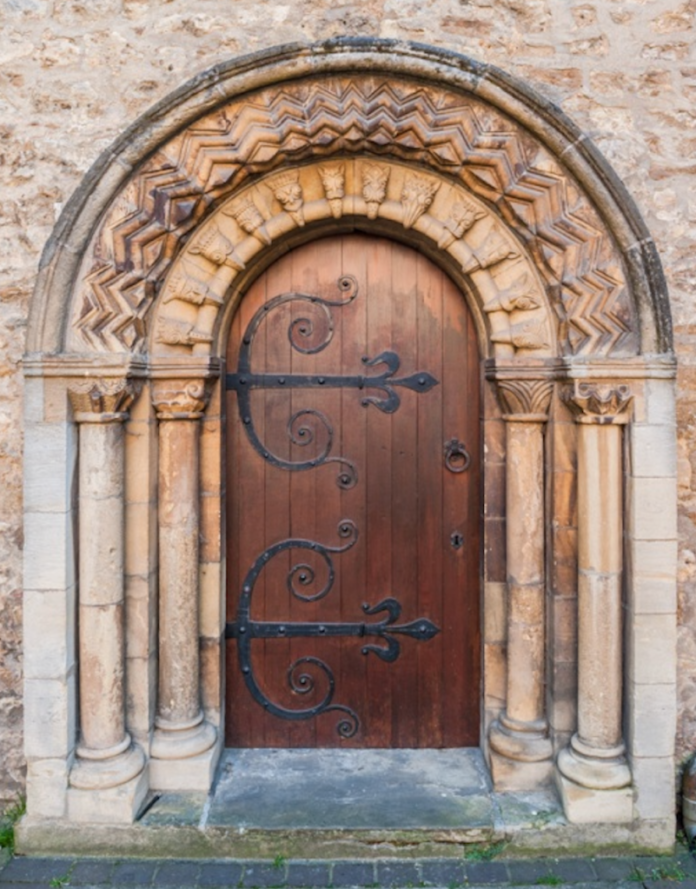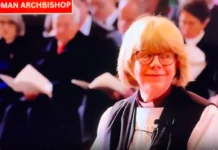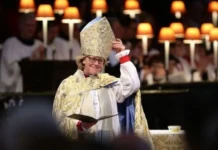I am a conservative evangelical. I attended St Ebbe’s Church when I was an undergraduate. I still admire the ministry of Vaughan Roberts, the Rector of St Ebbe’s. When I want to listen to a sermon on a particular passage, the St Ebbe’s sermon archive is one of the places I turn to. I’m not writing this article because I want to cause harm to Vaughan or St Ebbe’s or conservative evangelicalism. I’m writing because I want conservative evangelicals to do much, much better when dealing with matters of justice.
Another reason why I’m writing is because I’m a former staff member of Iwerne Holidays, the now-defunct summer camps at the centre of the John Smyth abuse scandal. In a recent interview, the Bishop of Winchester said “That whole world of those camps was fairly enclosed, self-referential and not a world that I ever belonged to. … How those networks function is probably something you can only really understand from within and I wasn’t within.” Unlike the bishop, I was within that world and those networks, so I do know how they function. As a result, I think it would be wrong for me to stay silent.
The purpose of this article is to call for Vaughan Roberts to do two things:
(1) Publicly apologise. That’s because, given his admitted knowledge of Smyth’s abuse, he could and should have done more to raise questions about the abuse when he was a trustee of the Titus Trust, the governing body that ran Iwerne Holidays.
(2) Answer questions that have been put to him about how much he knew. These questions will be easy for him to answer if he has nothing to hide.
As I’ll explain later, I contacted Vaughan privately before saying anything publicly.
Introduction: the Makin Review
The Makin review, published last week, revealed the Church of England’s failings concerning the abuse committed by Smyth. The review estimates that Smyth subjected “at least 115 children and young men” in Britain and Africa to “traumatic physical, sexual, psychological and spiritual attacks.” One 16-year-old boy, Guide Nyachuru, died in 1992 in highly suspicious circumstances while attending one of Smyth’s camps in Zimbabwe.
One of the worst parts of the scandal is the decades-long failure to bring Smyth to justice. If Smyth had been properly held to account by those who knew what he had done in Britain, the abuse in Africa may never have happened. Smyth’s abuse in Britain was covered up by the people who discovered it: the leaders of a conservative evangelical ministry known originally as “Varsity and Public School Camps” and later as “Iwerne Holidays”.
Most of the architects of the cover-up are now deceased or no longer active in ministry. However, the Makin review also mentions other individuals, still active in ministry, who knew about the abuse (whether earlier or later) but failed to properly and effectively report it. One of those was Justin Welby, the Archbishop of Canterbury, who resigned following the review’s publication.
Some active church officers are openly criticised in the review. In other cases, the review merely states allegations without offering a verdict. A media report last week said “The review by Keith Makin … names at least 30 individuals who are believed to still hold posts or influential roles within the Church. The safeguarding team is now assessing whether their actions justify termination.”
Vaughan Roberts and the Makin Review
One of the church officers mentioned in the Makin review is Vaughan Roberts. Here’s the relevant excerpt from the review:
“One such entry concerns Reverend Vaughan Roberts, the Vicar at St Ebbe’s Church in Oxford. It concerns an allegation made that Vaughan Roberts, whilst at a dinner at a conference in South Africa in 2017, made comments which were minimising of the abuses carried out by John Smyth. The assertion is that Vaughan Roberts knew of the abuse and characterised it as being understandable in the context of the time. Vaughan Roberts has made a statement to this Review, in which he says that his comments at the dinner have been misinterpreted and that he considers the abuses to be criminal and serious. He says that he did not know of the seriousness of the abuse until the airing of the Channel 4 programmes in early 2017. He does say that he had known ‘something’ had happened regarding John Smyth, but that the severity was never shared with him. Another person present at this dinner has written to Reviewers corroborating Vaughan Roberts’ version of events. We do not make any judgement either way about this matter and simply want to ensure that a fair account of the allegation and the response to it is conveyed.“
An Attempt To Reach out to Vaughan
The original generation who orchestrated the cover-up were highly respected conservative evangelical leaders such as Mark Ruston, who from 1955–87 led the Round Church in Cambridge (now St Andrew the Great), and David Fletcher, who from 1986–98 led St Ebbe’s. Surely one lesson that conservative evangelicals should learn from this scandal is that we mustn’t assume our own well-loved leaders are the “good guys” who always get things right.
With that in mind, I emailed Vaughan Roberts after the Makin review was published, asking if I could speak with him. I’ve known Vaughan for some thirty years. I was a member of St Ebbe’s from 1995–98 and 2000–03, and I also served alongside him at many events run by Iwerne Holidays. I wanted to speak with him because it seemed to me that Vaughan had known enough about the abuse to have addressed it in a meaningful way, and I thought he should issue a public apology for not doing more on the basis of what he knew.
What Did Vaughan Know?
After the Makin review was released, I was told by a friend that Vaughan had read the account of the abuse in John Thorn’s autobiography when it was published in 1989. (Vaughan would then have been 23; 1989 was the year when he began training for Anglican ministry at Wycliffe Hall in Oxford). Thorn had been the headmaster of Winchester College at the time when Smyth was grooming and abusing some of its pupils. Thorn’s account, which is included at the end of this post as Appendix B, includes three critical pieces of information. My own observations are added in brackets:
- The abuser was a neighbour who had no formal position at Winchester College.
(This meant the pupils knew he had no institutional right to punish them, and yet they let him punish them – a sign of his malevolent power.)
- He physically punished their sins.
(A gross perversion of the Christian faith.)
- He was quietly banished.
(I.e., there was a cover-up.)
Thorn didn’t name the abuser, but it’s evident from Vaughan’s testimony to Makin that Vaughan knew the abuser’s name was John Smyth.
I also knew that in the years that followed, Vaughan would have been repeatedly reminded of Smyth’s abuse by the ongoing difficulties experienced by the evangelical group at Winchester College, his old school. It was common knowledge, shared at Iwerne prayer meetings and in other contexts, that the evangelical group at Winchester wasn’t allowed to meet on school property due to “something bad” happening in connection with the group “a long time ago”. The predicament of that group – forced off-campus and still under a cloud due to some past scandal – was unique among all the schools associated with Iwerne Holidays. Most of us, myself included, never knew what the “something bad” was. But, thanks to Thorn’s account, Vaughan knew what it was, and he also knew the identity of the perpetrator. (The information in this paragraph is very significant because it answers the objection that Vaughan might have largely forgotten what he knew about Smyth’s abuse. The situation at Winchester would have kept reminding him.)
Lastly, I was also aware that from 2001–07 Vaughan had served as a trustee of the Titus Trust, the organisation that took over the responsibilities of the Iwerne Trust (which Smyth had chaired). This put Vaughan in a suitable position to find out what exactly had happened at Winchester when evangelical pupils at the Iwerne-linked meeting were abused by Smyth; why Smyth had been allowed to quietly depart for Africa; where Smyth was at the current time; what he was currently doing; and whether the relevant authorities in Britain and Africa had been properly informed. Two of Vaughan’s fellow trustees at that time, David Fletcher and David Wilkinson, were architects of the cover-up and knew the full extent of the savagery perpetrated by Smyth. If Vaughan had taken the opportunity to ask questions, Fletcher and Wilkinson would have been obliged for fiduciary reasons to answer. (Vaughan also had the opportunity to ask Fletcher for information about Smyth during the years 1991–98, when he was Fletcher’s right-hand man at St Ebbe’s; and afterwards when Fletcher returned to St Ebbe’s as a congregation member.)
Vaughan was therefore uniquely positioned in his generation to make an intervention: he’d been at Winchester College during the relevant timeframe, so he understood the context; he knew the name of the abuser; he knew the long-term impact of the abuse on the Iwerne-linked group at his old school; he knew the abuser had been quietly banished to Africa where he might be committing further abuse; and he was a trustee of the relevant governing board. The abuse was a past wrong with ongoing consequences and dangers, and that’s the kind of thing trustees should be inquisitive about. If Vaughan had pursued the matter as diligently as it deserved, he could conceivably have helped bring Smyth to justice and stopped him carrying out further abuse.
The Makin review is surely right that “a distinct lack of curiosity” can be blameworthy. That reason for criticism fits well with the Bible’s insistence that sin doesn’t need to be intentional to be sinful (see Leviticus 4:2 and Psalm 19:12). On that basis, I thought Vaughan should issue a statement apologising to the survivors because he could and should have done more.
Response from Vaughan and the Ebbe’s Churchwardens
In his reply to my email asking for a conversation, Vaughan said, “The Makin review makes horrific reading. If you’ve got anything you want to say to me, I think that would be best done via email. I keep accountable to the wardens, so if you do write, please copy them.” So I emailed Vaughan and his church wardens, saying, among other things:
Read it all in Sixty Guilders



